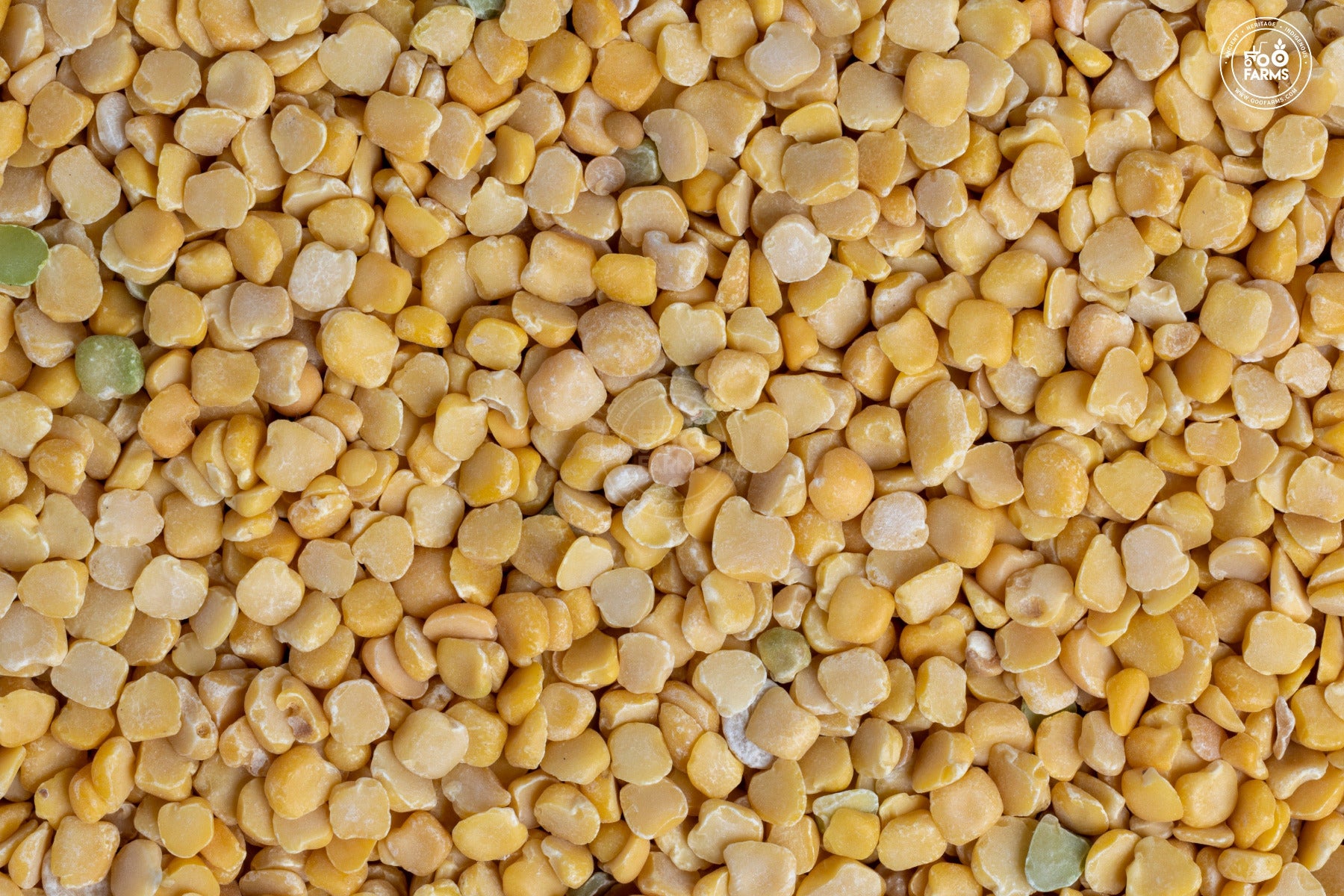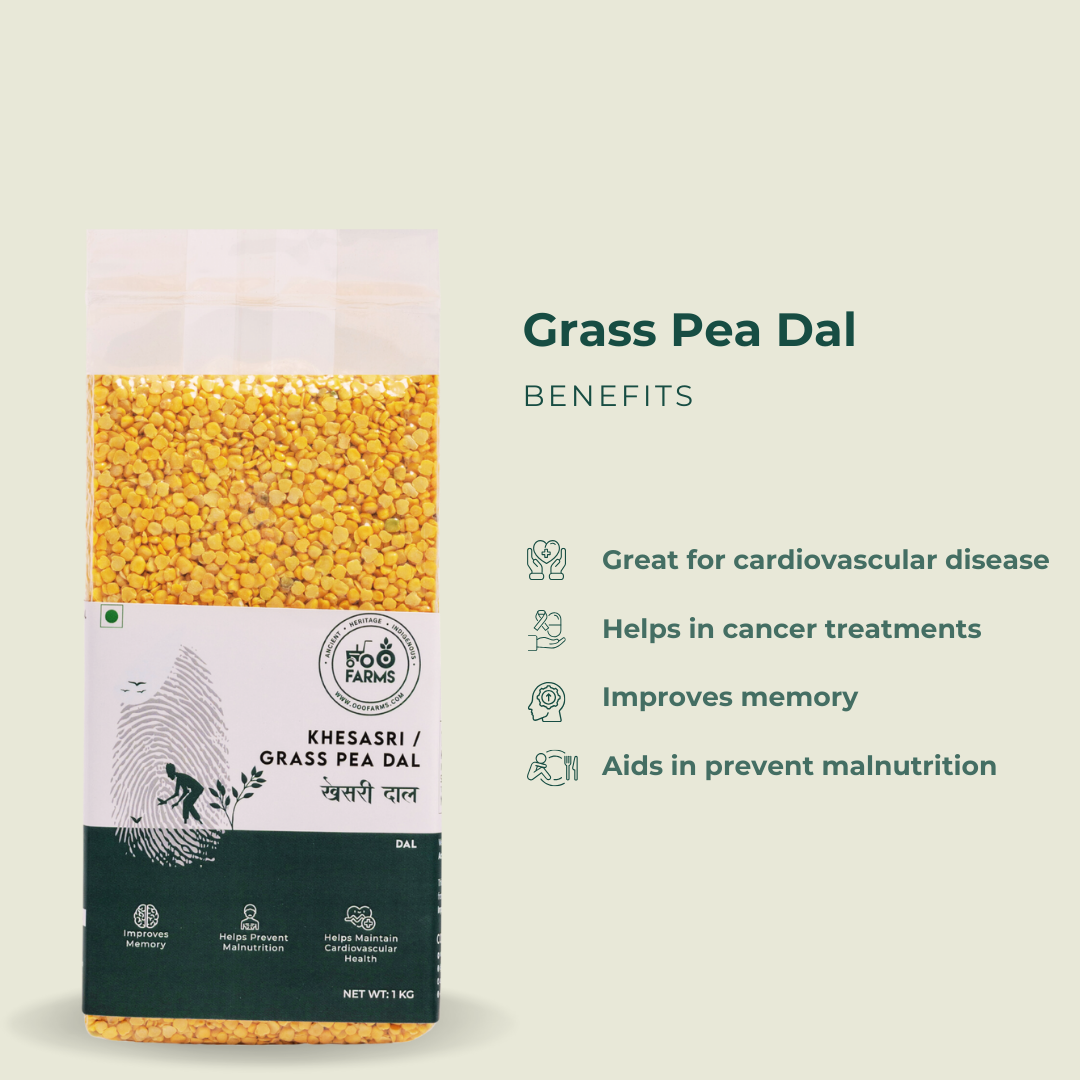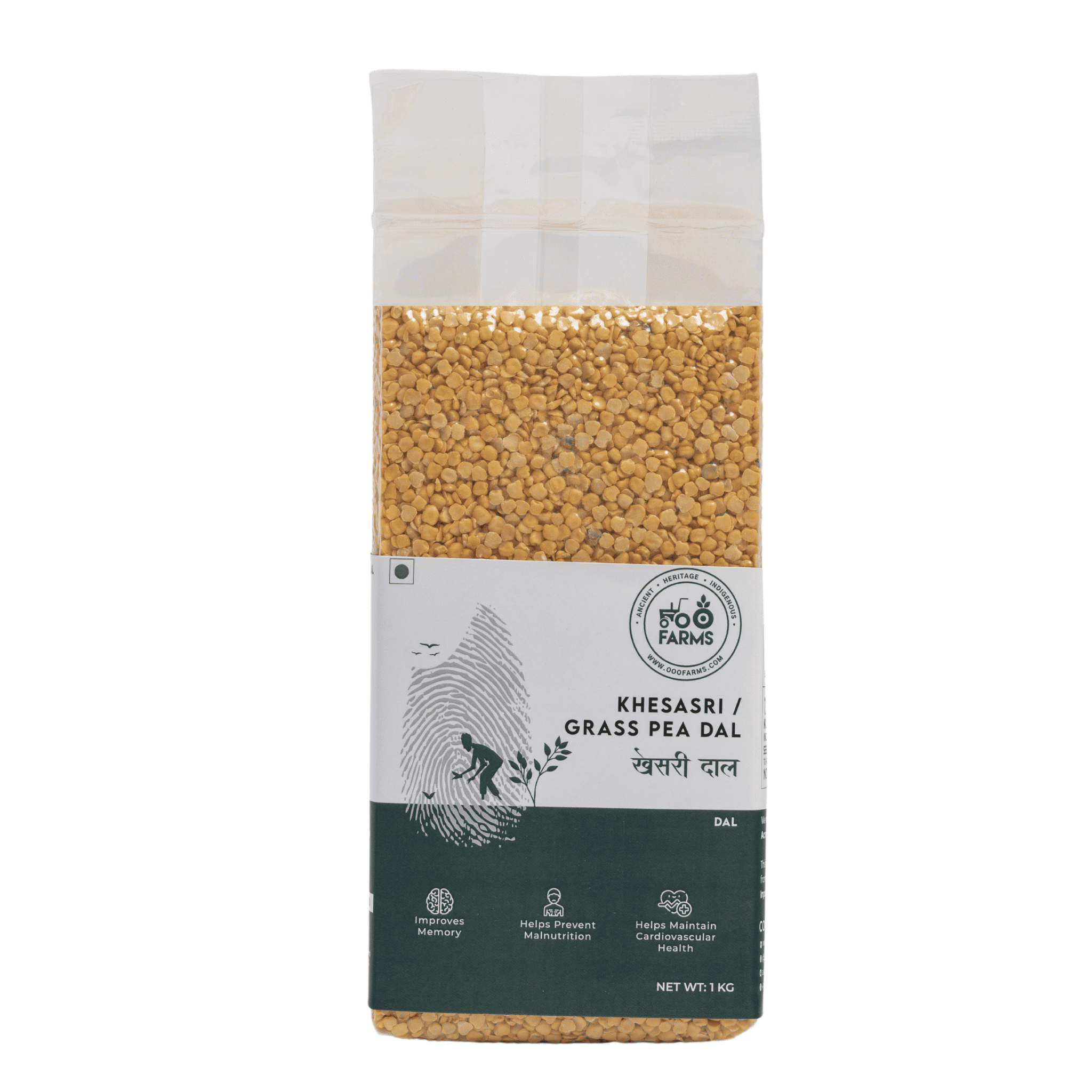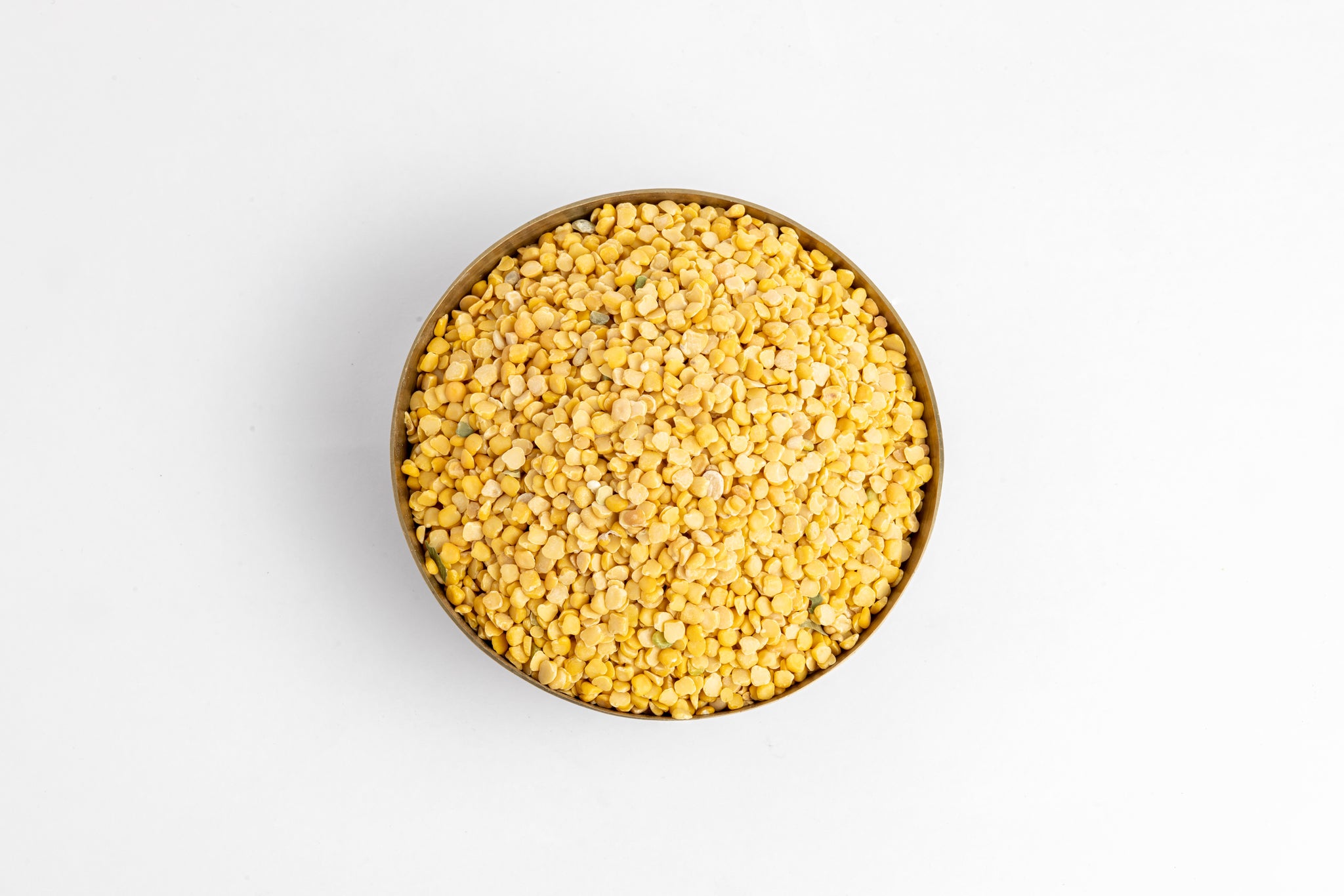



Additional Product Details
Description
Grass pea is one of the oldest cultivated crops with a long history of domestication. It was identified in the oldest excavations in India. According to the legend, grass pea was brought to Ethiopia (Abyssinia) by the queen of Sheba after visiting King Salomon in the tenth century BC.
In years of severe flooding or drought, grass pea is the only crop that survives in the field. It provides benefits in cardiovascular disease and cancer treatments. According to researchers, Khesari helps to improve memory and can be used to fight Alzheimer’s and Parkinson’s syndromes.
Health Benefits
Cooking Instructions
Recommended Usage
Commonly Known As
History





